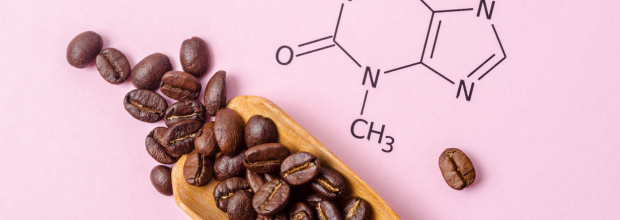
Whether a strong ‘builders’ brew or an extra hot double-shot cappuccino, most of us can’t start the day without a jolt of caffeine. In moderation, coffee and tea have been called ‘superfoods’. Both beverages contain polyphenols – powerful antioxidants that support many areas of health (1).
However, caffeine also has a few drawbacks. Aside from its well-known impact on sleep, coffee and tea consumption may also affect nutrient absorption from food and supplements.
How does caffeine impact nutrition intake?
First and foremost, caffeine is a diuretic, which means it increases urination (2). As such, it can deplete water-soluble nutrients like vitamins B and C, which play critical roles in energy production, cognitive function, and immunity (3).
Caffeine may also interfere with vitamin D3 and calcium uptake, which can impact bone health (4). Indeed, research on postmenopausal women suggests higher daily caffeine intake is associated with an increased risk of bone loss (5).
Additional data has revealed that coffee and other caffeinated beverages may reduce iron absorption, too. One study reported drinking coffee with an iron-rich beefburger reduced mineral intake by 39 per cent (6). Drinking tea with the same meal inhibited iron absorption by 64 per cent.
So, what precautions should I take?
Making a conscious effort to eat a balanced, whole-food diet with plenty of nutrient-dense plant foods – fruit, vegetables, whole grains, beans, lentils, peas, nuts, seeds and herbs – can help offset any nutritional loss, as can taking a high-quality multivitamin for your age and gender.
We also recommend limiting caffeine consumption to 1-2 cups a day. You may even wish to try decaffeinated coffee, herbal teas, or caffeine alternatives like guarana to help moderate your intake.
Finally, always wait an hour after eating or taking your multi before drinking caffeinated beverages to support proper nutrient absorption.
Find out more
If you found this article useful, you can find similar guidance on our health blog. Alternatively, please speak to our team of expert Nutrition Advisors, who are on hand to provide free, confidential advice
References:
-
Wang Y, Ho CT, Polyphenolic chemistry of tea and coffee: a century of progress. J Agric Food Chem. 2009;57(18):8109-14.
-
(2) Coffee, tea, mate, methylxanthines and methylglyoxal. IARC Monogr. Eval. Carcinog. Risks Hum. 51:1–513. 1991
-
Ulvik A, Vollset SE, Hoff G, Ueland PM, Coffee consumption and circulating B-vitamins in healthy middle-aged men and women. Clin Chem. 2008;54(9):1489-96.
-
Rapuri PB, Gallagher JC, Nawaz Z, Caffeine decreases vitamin D receptor protein expression and 1,25(OH)2D3 stimulated alkaline phosphatase activity in human osteoblast cells. J Steroid Biochem Mol Biol. 2007;103(3-5):368-71.
Barger-Lux MJ, Heaney RP, Caffeine and the calcium economy revisited. Osteoporos Int. 1999;5(2):97-102. -
Hallström H, Wolk A, Glynn A, Michaëlsson K, Coffee, tea and caffeine consumption in relation to osteoporotic fracture risk in a cohort of Swedish women. Osteoporos Int. 2006;17(7):1055-1064.
Hallström H, Byberg L, Glynn A, Lemming EW, Wolk A, Michaëlsson K, Long-term Coffee Consumption in Relation to Fracture Risk and Bone Mineral Density in Women. Am J Epidemiol. 2013;178(6):898-909. -
Morck TA, Lynch SR, Cook JD, Inhibition of food iron absorption by coffee. Am J Clin Nutr. 1983;37(3):416-20.
You Might Also Like

Olivia
Olivia Salter has always been an avid health nut. After graduating from the University of Bristol, she began working for a nutritional consultancy where she discovered her passion for all things wellness-related. There, she executed much of the company’s content marketing strategy and found her niche in health writing, publishing articles in Women’s Health, Mind Body Green, Thrive and Psychologies.
View More



